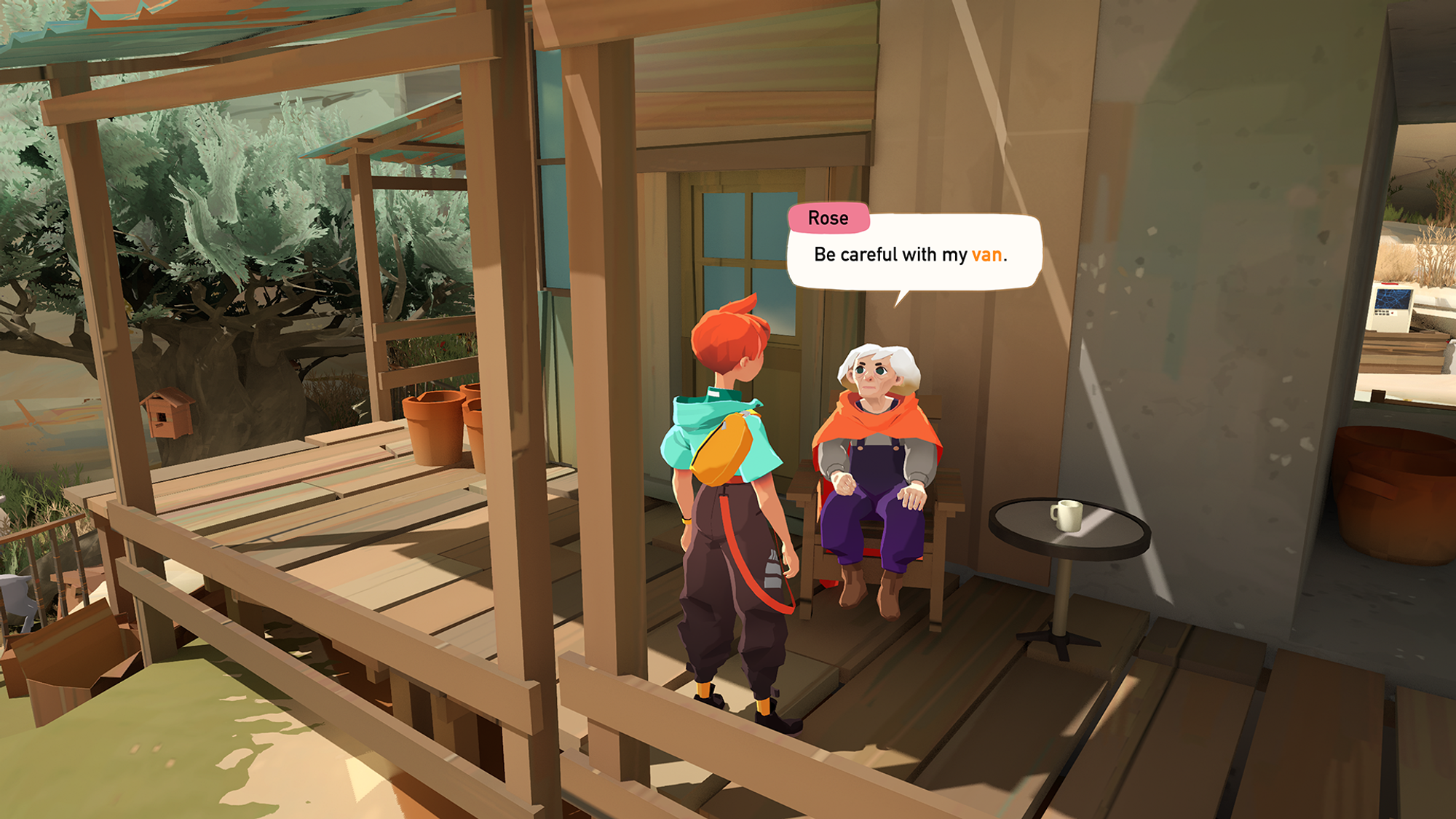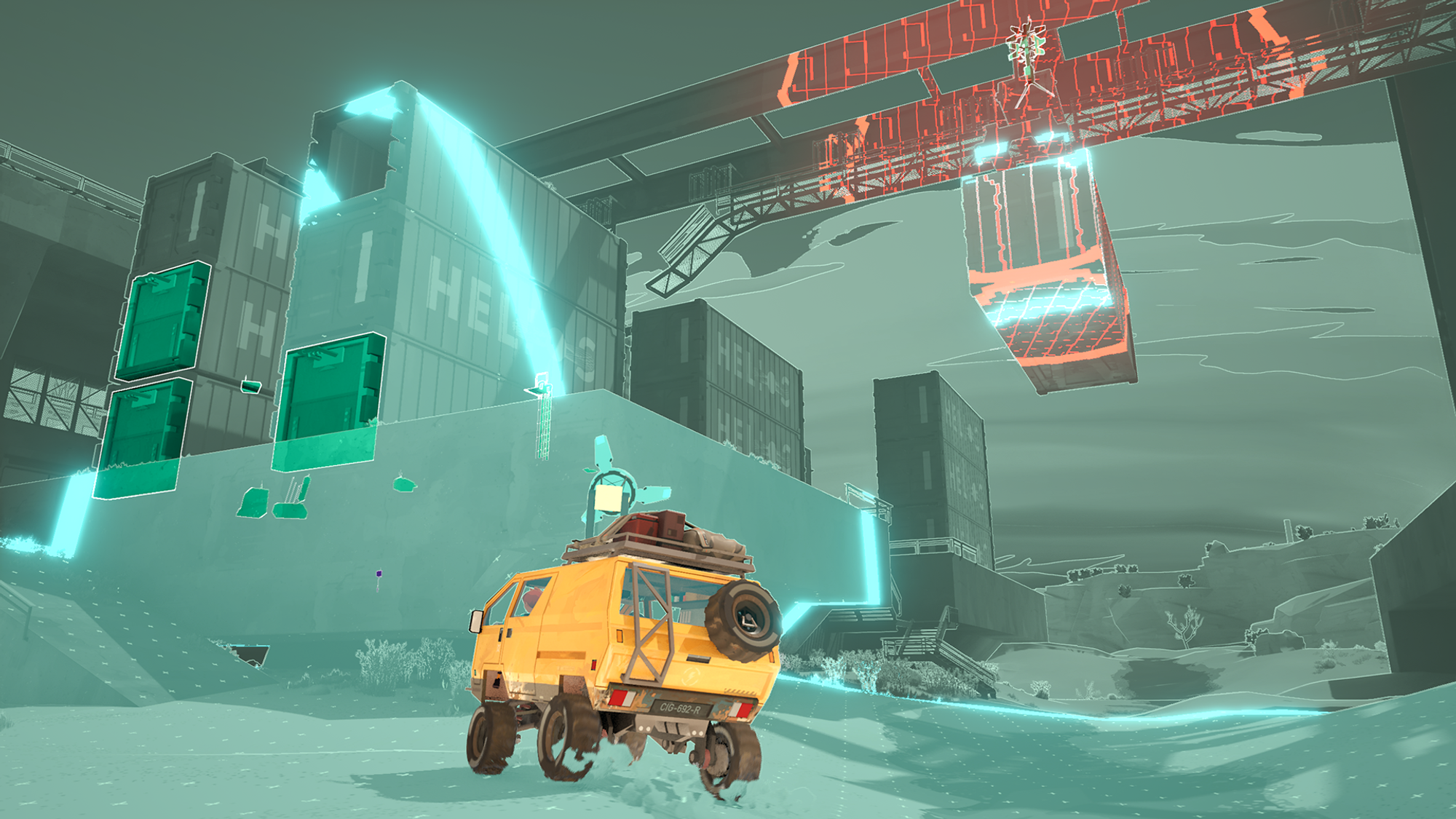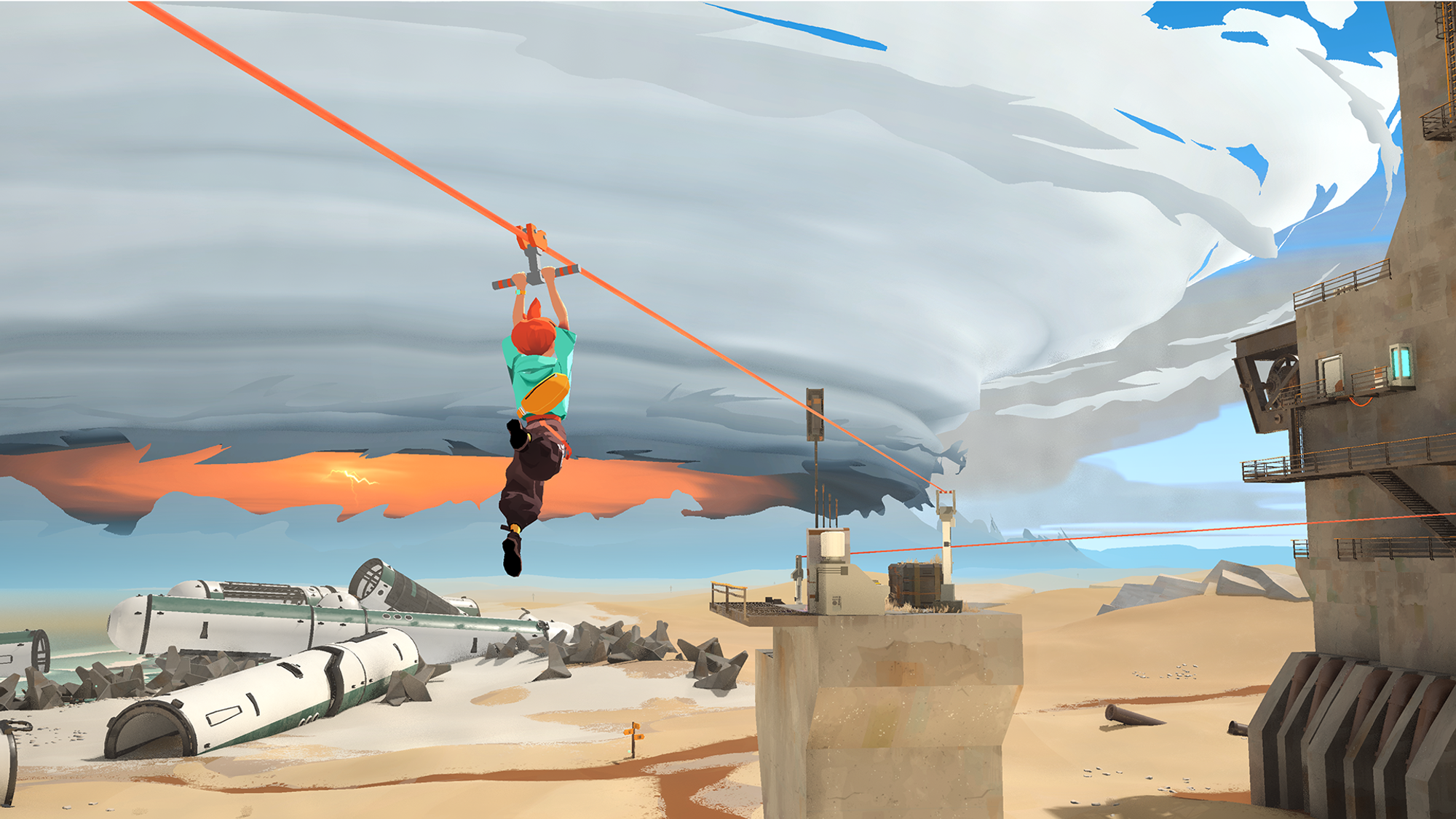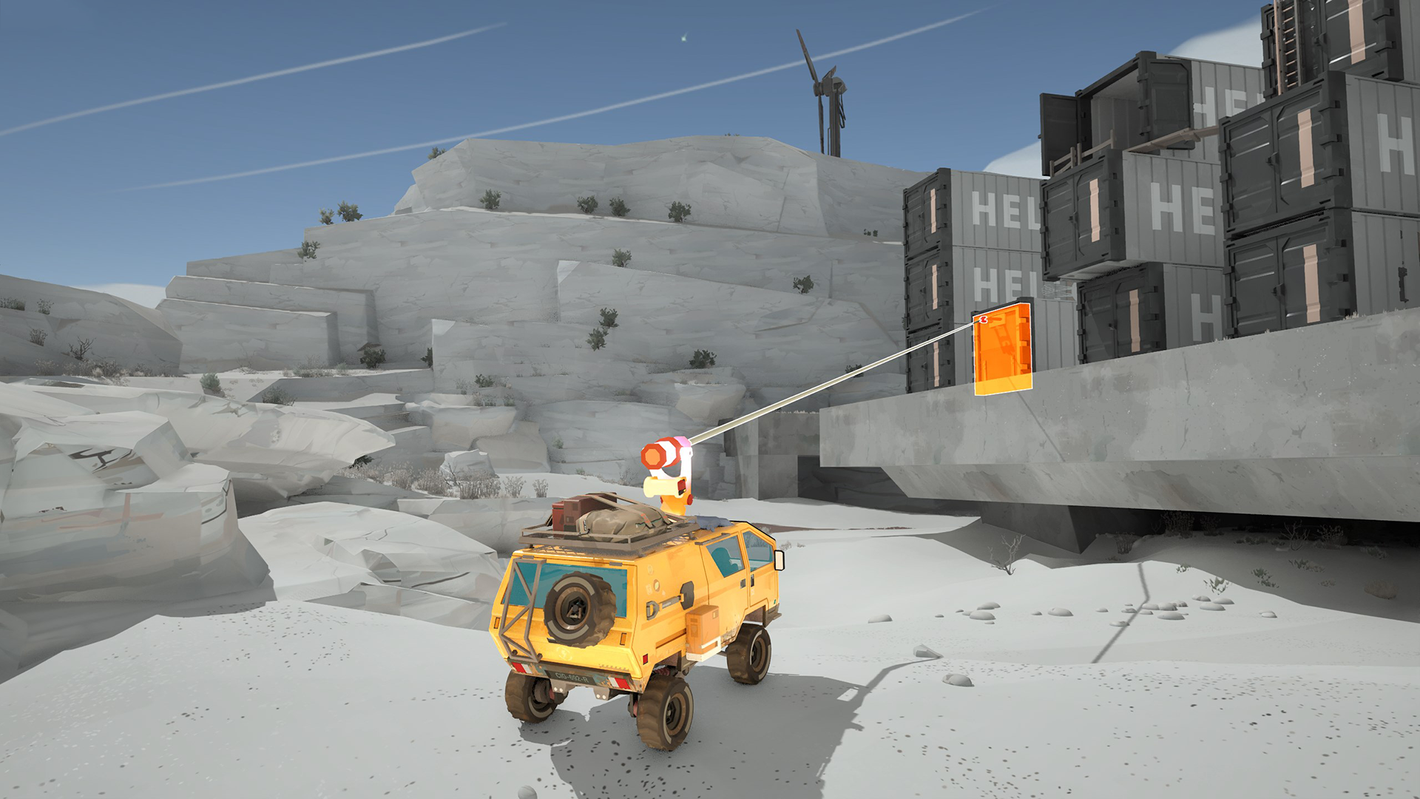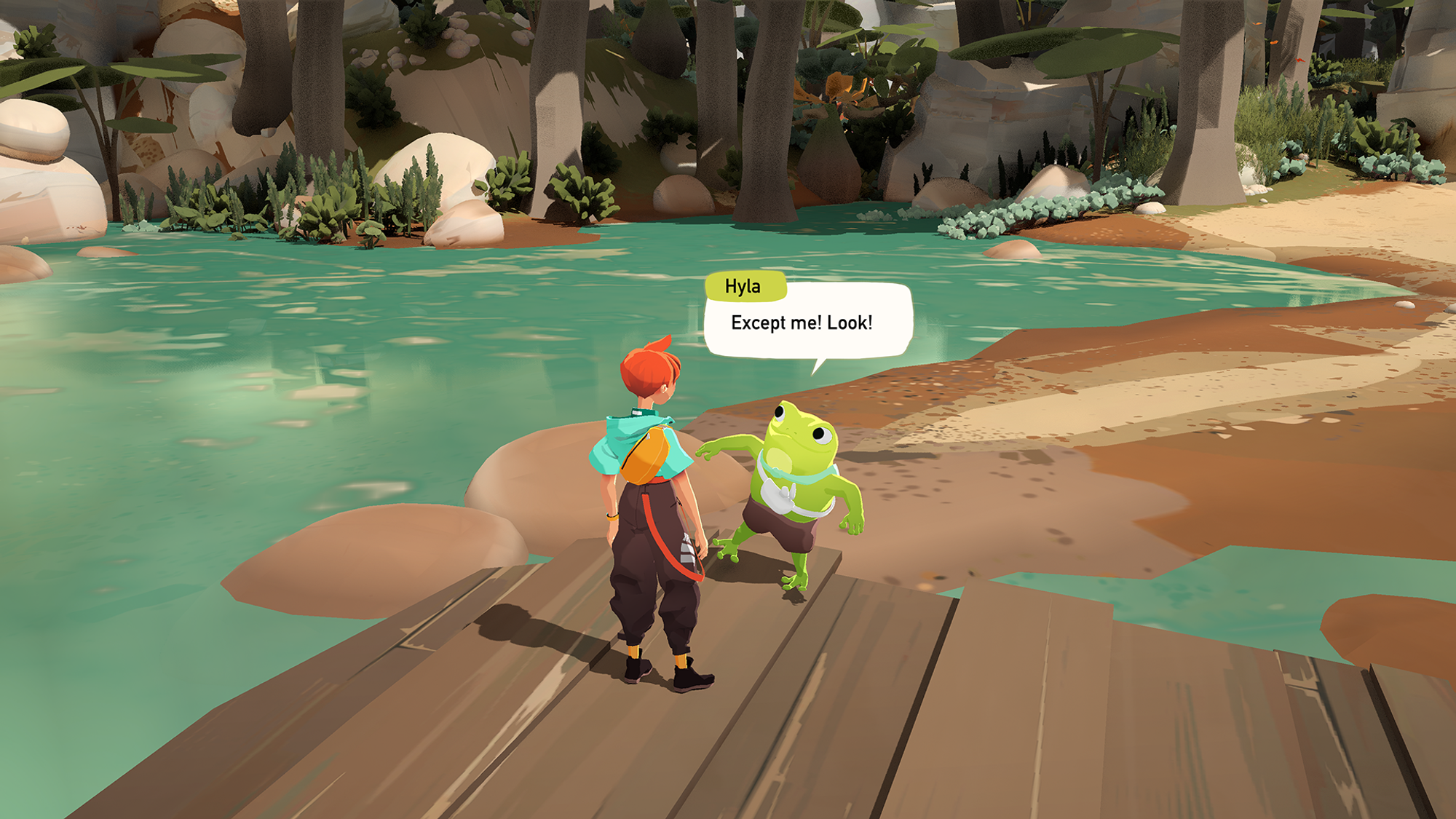Caravan SandWitch
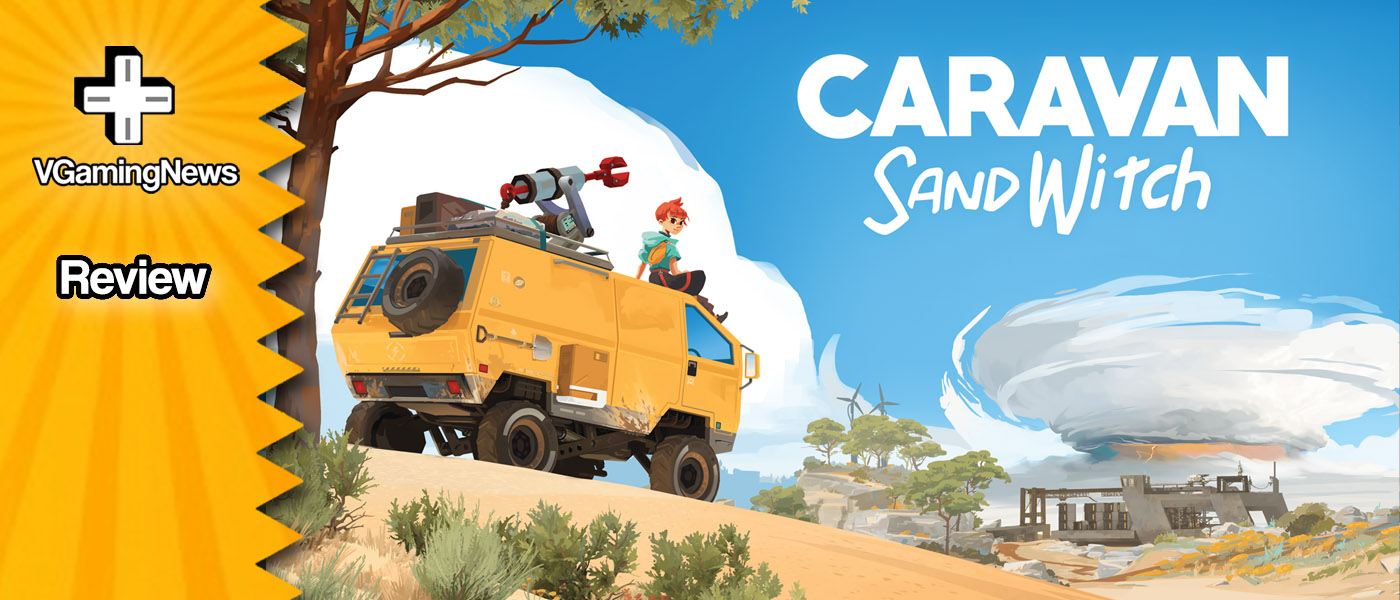
I find adventure games an incredibly sharp double-edged sword. I’m absolutely fascinated by epic quests filled with exploration and forever-unravelling environments, but equally find the thought of playing the same game for going-on a hundred hours incredibly daunting. I wasn’t quite sure what to expect when I fired up Caravan SandWitch, the latest open-world adventure from French dev team, Plane Toast, but what I found was a well formed tale brimming with curiosity, that never threatens to spill over into Homeric scale.
You play the role of Sauge, a young woman who’s summoned back to her home planet of Cigalo by a distress call, seemingly sent from her sister Garance, despite her going unexpectedly missing years earlier. Arriving back in her home village of Estello, she’s greeted by childhood friends, her estranged father, and the few remaining townsfolk who haven’t left the village for an easier life. After previously abandoning the rural life of Estello for the hustle and bustle of Space City, returning home brings a mix of emotions, but Sauge is determined to track down the source of the signal in the hopes of finding her sister.
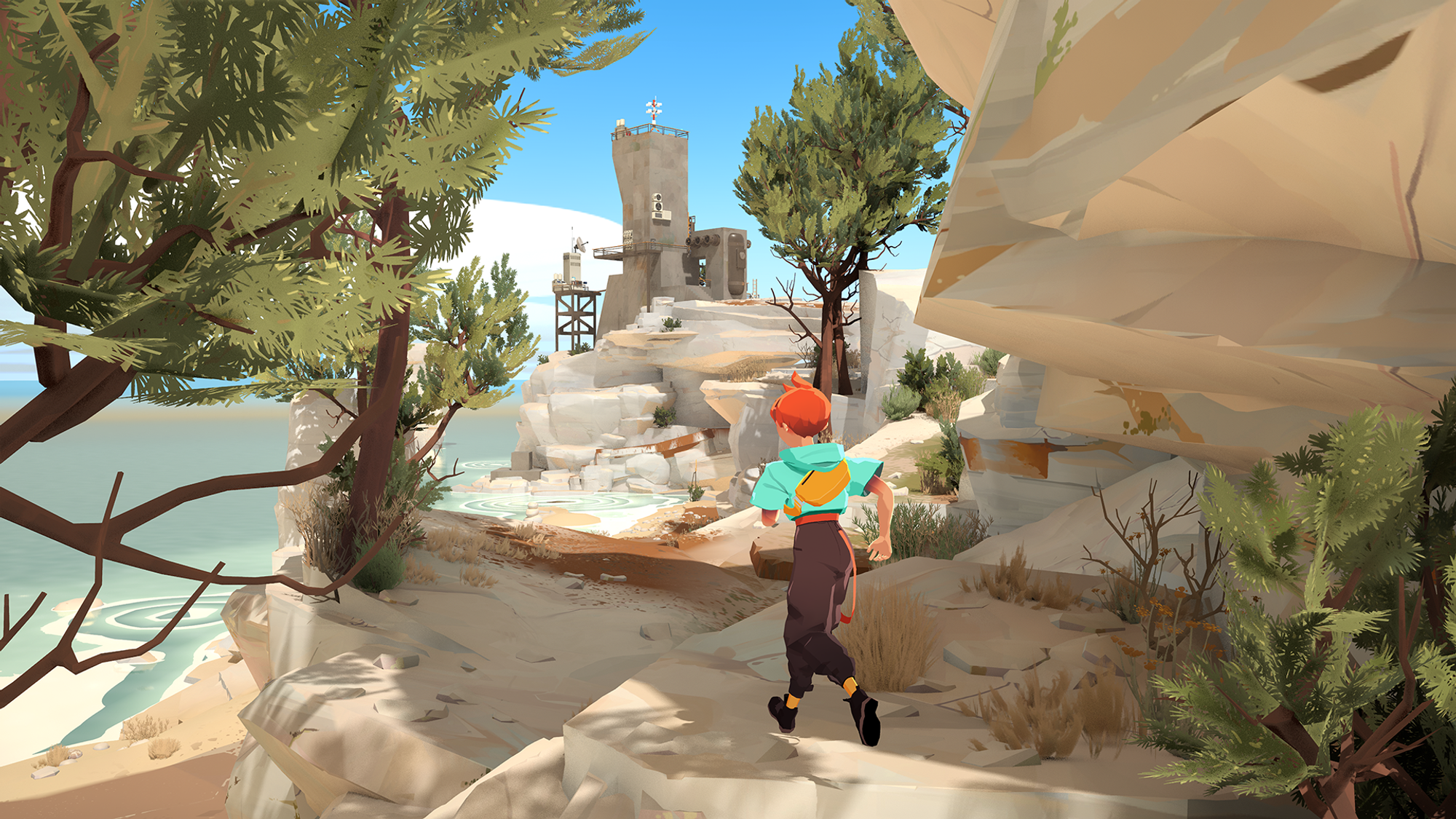
As you help Sauge reconnect with folks and mend a few fences, you come to learn more about the planet Cigalo and its recent tragic history. Once covered in vibrant swampland that the Reinetos people (more on them later) called home, Cigalo was pounced upon by greedy megacorporations and turned into a harsh desert planet. Many inhabitants liked the convenience, money and opportunities that The Consortium brought with them, and the planet became less of a homeworld and more of an industrial hub – at least until disaster struck. A terrible incident in the far reaches of the desert not only destroyed a Consortium facility and killed a host of civilians, but created an enormous and deadly storm in its wake. Overlooking the ecological and human cost of the incident, The Consortium quickly abandoned Cigalo as a profitable business enterprise. Without the money, infrastructure and the comforts The Consortium afforded, most of the inhabitants of Cigalo hopped in their spaceships, leaving only a handful of people to eke out a tough existence as the storm, known as the TARAASK, continues to rage in the desert.
At a Glance
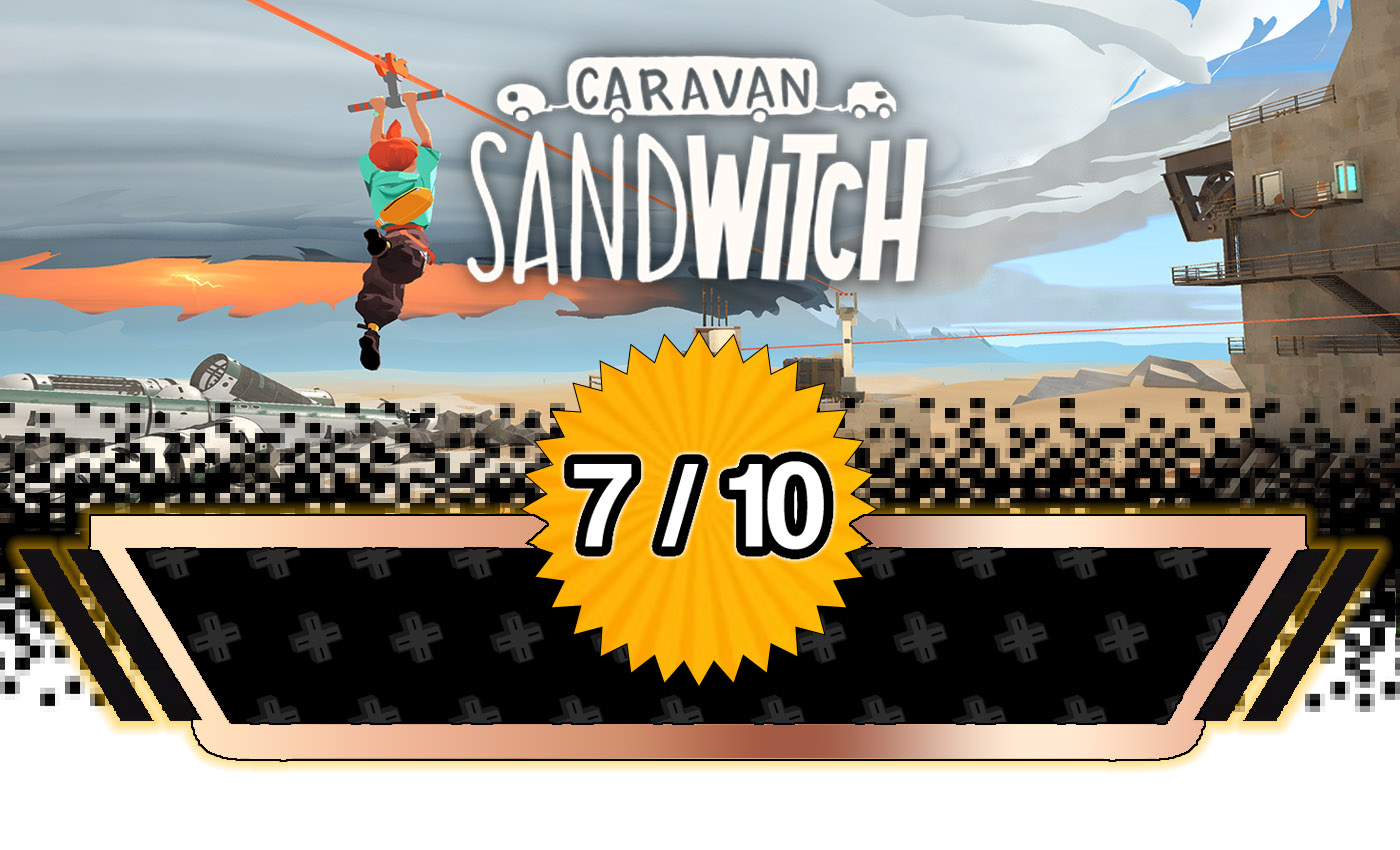
Positives |
Negatives |
+ Well built and intriguing world to explore + Rounded and diverse cast of characters + Perfect length at 10-15 hours |
– Some twitchy platforming in parts – Plot drivers a little hodge podge – Gameplay may not be diverse enough for some |
Available on: |
|
The gameplay premise is simple but really effective – you drive around in a beat up but loveable little van, exploring the ruins of the desert, deactivating problematic technology and generally running errands for folks. And while the setting might be harsh, the gameplay is anything but, with Caravan SandWitch offering an entirely risk-free adventure. You can careen around the dunes with wanton abandon and hop between high ledges without fear of falling, since Sauge won’t take any damage, no matter what missteps you make. This low stakes approach to adventure will undoubtedly irk some, as there’s no real challenge to speak of, so your enjoyment will likely boil down to how much you like exploring the wilderness, and unpicking the mysteries of Garance’s disappearance and the motives of the sinister SandWitch, who seems to be stalking Sauge at every turn.
One of the main play drivers is finding scraps of technology that lay scattered throughout the ruins of Cigalo and upgrading the van through the genius of Nèfle, the resident mechanic. I thought each of the van upgrades came in a timely manner, offering a nice balance between accessing new areas and keeping you wanting more, as well as encouraging you to return to past areas with new kit, squeezing every last drop of adventure out of each locale. The upgrades themselves may seem pretty bland in function, but they’re actually very well implemented in the gameplay. I didn’t think I could get especially excited about gaining a tow rope, but Plane Toast have done a good job in their level design, making even the most mundane tool a joy to utilise.
Despite the scales being vastly different, I felt the same sense of adventure in Caravan SandWitch as I did in The Legend of Zelda: Breath of the Wild. Zooming towards huge new landmarks on the horizon was always exciting, but it’s actually just as enthralling to explore the smaller places, overflowing with charm and intrigue as they are. Hopping out of the van and scouring every nook and cranny of the ruins is really quite addictive, and I always felt like my curiosity and willingness to explore was rewarded with goodies tucked away in hard to reach places, which wasn’t always the case in Nintendo’s elven epic. I’d argue that the size of the adventure is significantly less intimidating too, with Caravan SandWitch coming in at about a tenth of the size of most open world games, without sacrificing much in the sense of enjoyment or exploration.
I liked the visuals in Caravan SandWitch, which offer a soft colour palette over rugged landscapes, complimented by vibrant and distinctive character designs. There’s plenty of detail in the environments and detritus, even at lower end settings (so says my potato laptop), and there’s a melancholic beauty to the dishevelled world you see rumbling by outside the confines of your van. The soundtrack is a chill, breathy affair, as you might expect from this laid back road trip of exploration, and I found myself thoroughly relaxed by the mix of calm ambiance and serene surroundings as I helped Sauge in her search.
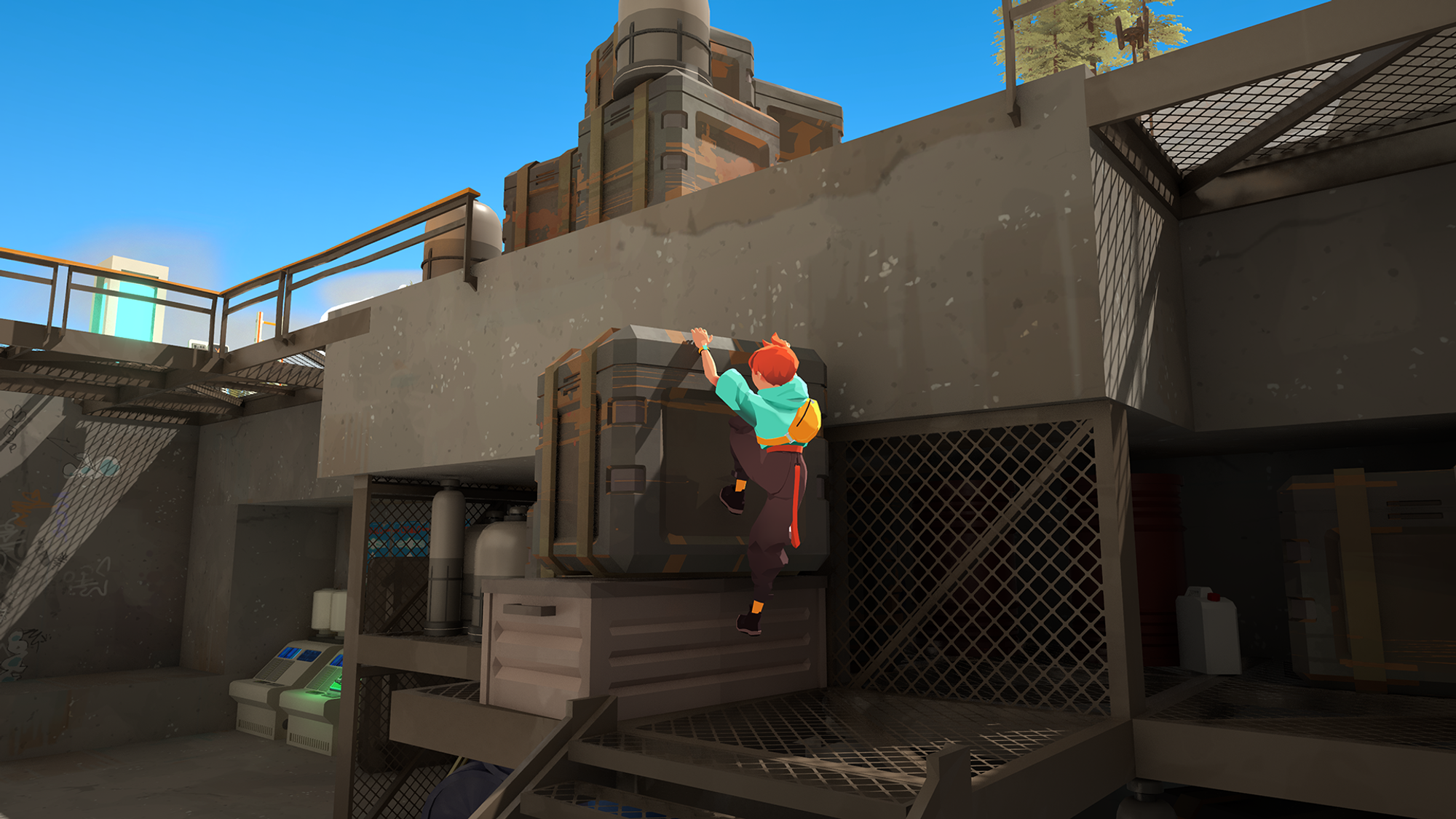
Overall, I’d say that the overarching story doesn’t break much new ground and struggles with consistency in some areas, but I certainly enjoyed what Plane Toast has put together, especially at the more granular levels. The relationships and emotions expressed are nuanced, and there’s something quite comforting about exploring the memories of Sauge’s upbringing, and reconnecting with her homeworld and the people from her past. I thought the plot carried a solid and consistent pace throughout, though I felt things fell a little flat in the final act, perhaps owing to a couple of reveals that weren’t quite grandiose enough to have the desired impact. One hinges on something too obscure, and the other on something almost too expected – there’s been a nice bow placed on things, for sure, but it lets a little air out of what could have been a great crescendo, in my opinion.
But the world, the lore weaved around it, and the people who inhabit it, do a tremendous amount of heavy lifting, making Caravan SandWitch feel like a game that’s much, much bigger. I was fascinated with every isolated landmark and found each one of Sauge’s anecdotes intriguing and purposeful. Despite the clean cut visual style, there’s a real and deep sense that Cigalo has been truly abandoned – once courted and now discarded, left to be swallowed by the unforgiving sands.
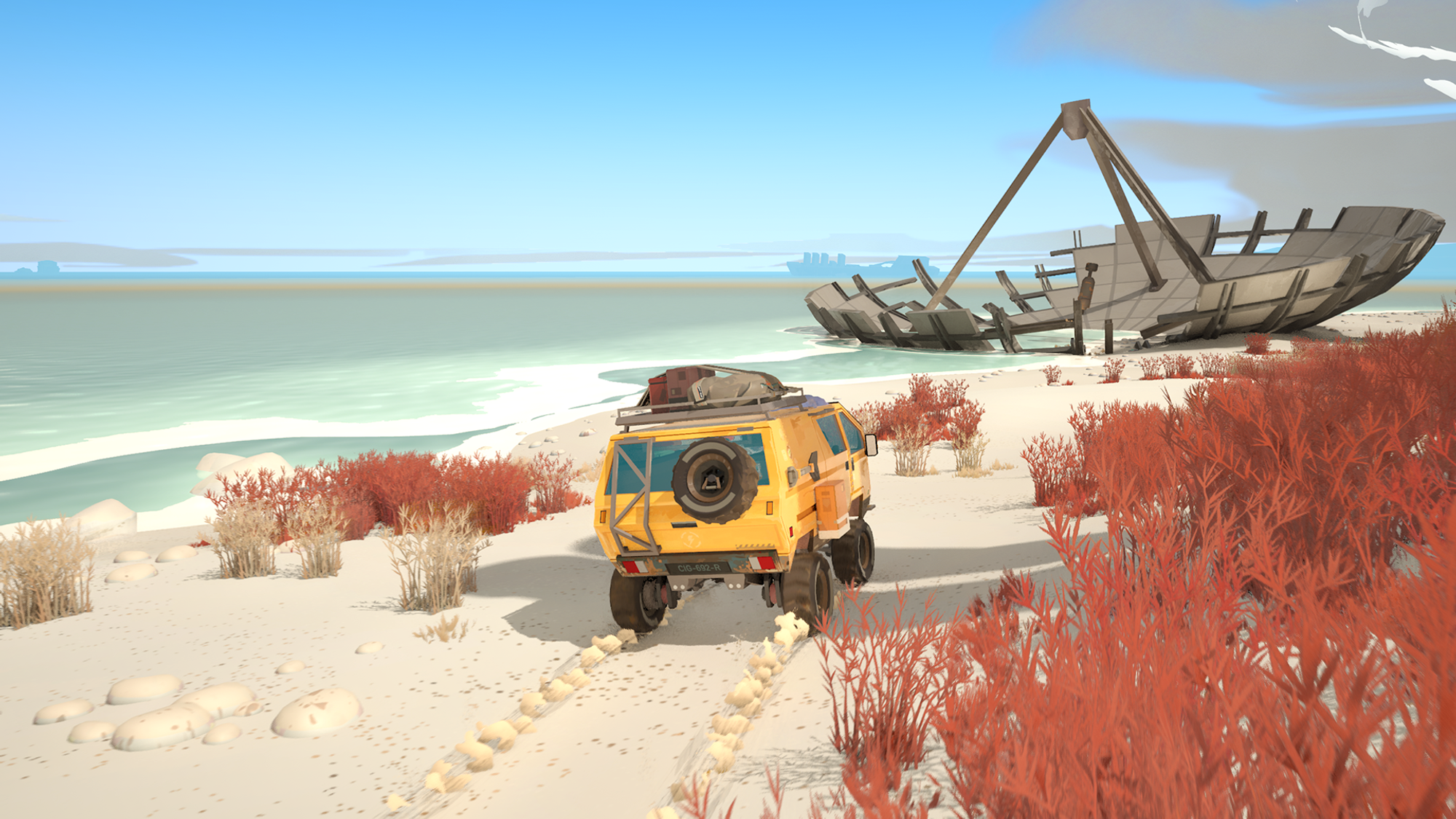
The depth of the world building is best highlighted by the Reinetos, the race of frog-people native to Cigalo, who have been forced to retreat to a network of caves, away from the harsh desert sun. As the Reinetos age they grow immeasurably large, and eventually willingly concede their lives to join the Mycelium, a sort of fungal collective consciousness that feeds into the psyche of their newborns. The level of detail used to describe the culture of just a handful of characters is mind-blowing, and speaks to the consideration given to the peoples who make up Caravan SandWitch. To further that point, the cast of characters is incredibly diverse; there is a myriad of races and sexual orientations represented, and conversations take place exclusively in gender neutral language, making it clear that everyone is welcome on Cigalo.
Caravan SandWitch is a small-scale open world adventure that delivers a tale that’s as heart warming as it is sombre; it’s filled with nuanced relationships and impressively deep lore, and I found it a joy to experience. There’s little to fault about the cosy, risk free gameplay except that it simply may not be to everybody’s taste, but for me, it makes a nice change of pace to a landscape that’s currently bubbling over with ultra-tough soulslike adventures. Pottering around in your beat up old van and doing good deeds for people feels genuinely rewarding, and exploring the final abandoned outposts of civilisation on Cigalo offers a sense of adventure that’s so much bigger than its 10-15 hour runtime.
In the interest of full disclosure, VGamingNews was provided with a copy of the game in order to conduct this review.
Thanks for taking the time to read our review, If you’d like to support us further, please consider buying us a coffee!


